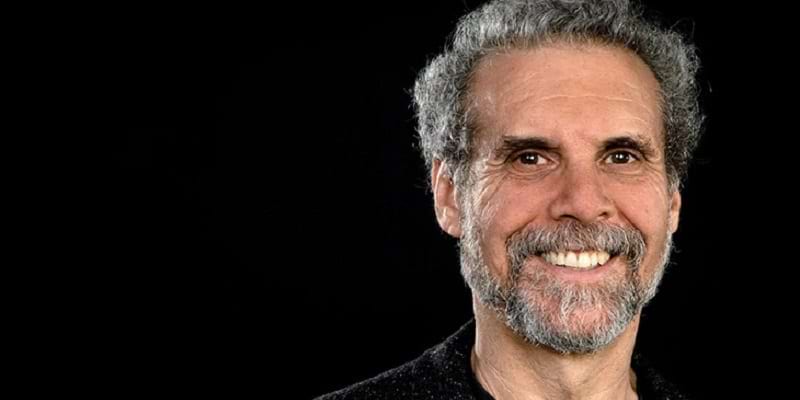Daniel Goleman biography and books

Daniel Goleman (1946) is a Ph.D. graduate in psychology from Harvard University. He is also the founder of the Emotional Leadership styles and the five components of emotional intelligence. It is the ability to perceive emotions so as to assist thought, to understand emotions and emotional knowledge, and to reflectively regulate emotions so as to promote emotional and intellectual growth.
Daniel Goleman biography
During his performance in high school, Daniel Goleman has received a scholarship from Alfred P. Sloan Foundation and went to Amherst College. However, due to cultural differences, he returned to California where he studied anthropology. Even though Goleman had returned to California, he graduated in Amherst by writing his honours paper on mental health in historical, anthropological and social perspectives.
After graduation, The Ford Foundation had given Daniel Goleman a scholarship and he went to Harvard University where he studied clinical psychology. Goleman was driven by studying the human mind from an interdisciplinary perspective.
With the help of his mentor and a Harvard pre-doctoral traveling fellowship, he studied the ancient systems of psychology and accompanying meditations practices of Asian religions.
After receiving a post-doctoral grant from the Social Science Research, Goleman continued his study and wrote his first book The Meditative Mind. The book summarizes his research on meditation.
After a recommendation of his former mentor David C. McClelland of Harvard University, Daniel Goleman was offered a job at Psychology Today, a major magazine at that time. Later he got recruited by the New York Times, where he learned about science journalism.
However, Goleman realized that his urge to write about his ideas, such as research on the emotions of the brain, did not always fit with The New York Times. It was the trigger to write a book of his research, which was covered in small bits over the years. The book Emotional Intelligence has been awarded as a best-seller by The New York Times for more than one year.
In addition to this book, Daniel Goleman has received many journalistic awards for his literature and has twice been nominated for the Pulitzer Prize, an award with the focus on news, art, and literature. Due to his active involvement in communicating behavioral science to the public, he was elected in 1985 as a member of the American Association for the Advancement of Science (AAAS).
Daniel Goleman is a board member of The Mind and Life Institute for more than 20 years. The organization’s vision is to build scientific understanding of the mind to reduce suffering and promote well-being. Next to this function, Daniel Goleman is the co-founder of CASEL (Collaborative for Academic, Social, and Emotional Learning organization). The organization is established to help make evidence-based social and emotional learning as an integral part in schools.
In addition to these functions, Daniel Goleman is the co-director of Consortium for Research on Emotional Intelligence in Organizations. According to the consortium, social and personal competencies are vital for a healthy and productive lifestyle. For this reason, the mission of this organization is to advance research and practice of emotional and social intelligence in organizations by exchanging knowledge.
At this moment, he is working as a writer, psychologist, and a science journalist for the New York Times. Goleman is still requested to lecture to professional groups, business audiences, and on college campuses.
Famous quotes by Daniel Goleman
- Smart phones and social media expand our universe. We can connect with others or collect information easier and faster than ever.
- If your emotional abilities aren’t in hand, if you don’t have self-awareness, if you are not able to manage your distressing emotions, if you can’t have empathy and have effective relationships, then no matter how smart you are, you are not going to get very far.
- Scheduling down time as part of your routine is hard but worth it, personally, even professionally.
- I think the smartest thing for people to do to manage very distressing emotions is to take a medication if it helps, but don’t do only that. You also need to train your mind.
- When I say manage emotions, I only mean the really distressing, incapacitating emotions. Feeling emotions is what makes life rich. You need your passions.
- In a high-IQ job pool, soft skills like discipline, drive and empathy mark those who emerge as outstanding.
- People tend to become more emotionally intelligent as they age and mature.
- In politics, readily dismissing inconvenient people can easily extend to dismissing inconvenient truths about them.
- I don’t think focus is in itself ever a bad thing. But focus of the wrong kind, or managed poorly, can be.
- We need to re-create boundaries. When you carry a digital gadget that creates a virtual link to the office, you need to create a virtual boundary that didn’t exist before.
- When we are in the grip of craving or fury, head-over-heals in love our recoiling in dread, it is the limbic system that has us in its grip.
- For better or worse, intelligence can come to nothing when the emotions hold sway.
- Feelings are self-justifying, with a set of perceptions and “proofs” all their own.
Publications and books
- 2015. A force for good: The Dalai Lama’s vision for our world. Bloomsbury Publishing.
- 2013. Primal leadership: Unleashing the power of emotional intelligence. Harvard Business Press.
- 2013. Focus: The hidden driver of excellence. A&C Black.
- 2010. Ecological intelligence: The hidden impacts of what we buy. Crown Business.
- 2008. Social intelligence and the biology of leadership. Harvard Business Review, 86(9), 74-81.
- 2007. Social intelligence. Random house.
- 2006, 1995. Emotional intelligence: Why it can matter more than IQ for character, health and lifelong achievement.
- 2006. Emotional intelligence: what does the research really indicate?. Educational Psychologist, 41(4), 239-245.
- 2006. The socially intelligent. Educational leadership, 64(1), 76-81.
- 2003. Destructive Emotions, how can we overcome them.
- 2003. Healing emotions: Conversations with the Dalai Lama on mindfulness, emotions, and health. Shambhala Publications.
- 2003. What makes a leader. Organizational influence processes, 229-241.
- 2002. The new leaders: Transforming the art of leadership into the science of results (p. 14). London: Little, Brown.
- 2001. Primal leadership: The hidden driver of great performance. Harvard business review, 79(11), 42-53.
- 2001. The emotionally intelligent workplace: How to select for, measure, and improve emotional intelligence in individuals, groups, and organizations. Jossey-Bass.
- 2000. Clustering competence in emotional intelligence: Insights from the Emotional Competence Inventory (ECI). Handbook of emotional intelligence, 99(6), 343-362.
- 1998. Working with emotional intelligence. Bantam.
- 1998. Bringing emotional intelligence to the workplace. New Brunswick, NJ: Consortium for Research on Emotional Intelligence in Organizations, Rutgers University.
- 1996. Vital lies, simple truths: The psychology of self-deception. Simon and Schuster.
- 1996. Emotional Intelligence. Why It Can Matter More than IQ. Learning, 24(6), 49-50.
- 1980. The varieties of the meditative experience.
- 1976. Meditation as an intervention in stress reactivity. Journal of Consulting and Clinical Psychology, 44(3), 456.
- 1976. Attentional and affective concomitants of meditation: A cross-sectional study. Journal of Abnormal Psychology, 85(2), 235.
How to cite this article:
Zeeman, A. (2017). Daniel Goleman. Retrieved [insert date] from Toolshero: https://www.toolshero.com/toolsheroes/daniel-goleman/
Original publication date: 10/20/2017 | Last update: 08/22/2023
Add a link to this page on your website:
<a href=”https://www.toolshero.com/toolsheroes/daniel-goleman/”>Toolshero: Daniel Goleman</a>











